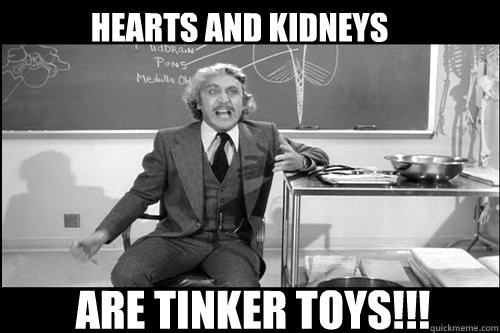nancysinatra
you don't seem to think very highly of psych from an intellectual challenge standpoint (either that or you feel your much better than most psychiatrists at psychiatry so its uniquely easy for you). And it seems that this doesn't sit well with you because you seem to always complain about it. So what are you doing to make psych personally for interesting or challenging to you? Seems like if someone were in your place they would be doing something to quickly elevate themselves in the field like gunning to become chairman of a program or building up a hugely successful "VIP" type practice in a big city by word of mouth, becoming a renowned expert forensic evaluator, joining some cutting edge research group, taking some floundering community mental health agency and turning it around, etc, etc.
If you feel like your skills are just that of a "glorified social worker", then why not go out and make yourself more than that?
How do you know I am not doing one of those things?
I didn' say my SKILLS were that of a "glorified social worker." I was referring to my experience in residency as seeming like glorified social work. Maybe other programs are more interesting. (I did have some good rotations, by the way. But the aggregate was a lot of repetition.)
Anyway here is take a typical day on one of my inpatient rotations:
Morning - in rounds, typically dominated by various non-medical members of the "multidisciplinary team"
After rounds, doing such exciting tasks as "getting collateral" or "holding a family meeting"
At some point during the day I often had to attend some kind of lecture. 99.999999% of the time that lecture would be on one of the following topics: Boundary Violations, Professionalism, Social Media and its Misuses, or my personal favorite waste of time, Work Life Balance
I had to write my notes, the purpose of which is a) to prevent lawsuits and b) to fill out as many redundant little check boxes and system alerts as humanly possible.
I always had some number of meaningless forms to fill out for the program office. Oh, and verifications that I had competed each hospital's "HIPAA privacy training module"
At other times we'd have some "conference" where there would be some 2 minute discussion about a case, and then the rest of the time people would go around the room asking questions, usually of a logistical nature.

